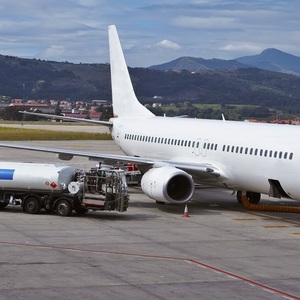Growth Energy tells EPA biofuels can reduce aviation emissions

April 5, 2022
BY Growth Energy
Growth Energy submitted comments to the U.S. EPA on the agency’s particulate matter (PM) emissions standards and test procedures for jet engines, and the role biofuels play in reducing PM and greenhouse gas emissions in mobile sources including the aviation sector.
“As we have already seen with higher biofuel blends and light-duty vehicles, the use of sustainable aviation fuel (SAF) holds tremendous potential for reducing air pollution and improving our air quality,” wrote Growth Energy. “Ethanol to jet fuel as SAF has the potential to replace 50% of the petroleum used in jet fuel.”
In its comments, Growth Energy shared a recent alternative jet fuel emissions project from the Airport Cooperative Research Program for the National Academies of Science, Engineering, and Medicine, which shows that a 50 percent blend of SAF can reduce PM emissions by nearly 70 percent, sulfur by 37 percent, and carbon monoxide by 11 precent.
Advertisement
Advertisement
“These are meaningful reductions that would be a win-win-win for our environment, human health, and for our rural economy.”
In February 2022, Growth Energy Senior Vice President of Regulatory Affairs Chris Bliley testified before EPA at its virtual public hearing on its proposed rulemaking for the PM emission standard for aircraft engines. At the hearing, and as reflected in the comments submitted yesterday, Growth Energy underscored the impact biofuels can have in decarbonizing the aviation sector.
“With the appropriate investment in critical research and development, and the right policy environment, our industry can work to remove these harmful emissions from our aviation fleet,” testified Bliley. “To achieve the Biden Administration’s goal of 3 billion gallons of SAF production by 2030 and 35 billion gallons by 2050 to achieve net-zero emissions in aviation, we will need game-changing solutions.”
Advertisement
Advertisement
Background
In September 2021, the White House announced a new Sustainable Aviation Fuel Grand Challenge to inspire the dramatic increase in the production of sustainable aviation fuels to at least 3 billion gallons per year by 2030. In the same month, in order to achieve this goal, Growth Energy joined ag and biofuel leaders in sending a letter to the Senate Finance Committee and House Ways and Means Committee outlining its recommendations for a sound and effective SAF tax credit.
Related Stories
Iowa farmers have a new market opportunity for their 2025 soybean crop. Landus is expanding its Clean Fuel Regulation initiative, made possible by recent policy changes expected to increase Canada's demand for liquid biofuel.
Topsoe, a leading global provider of advanced technology and solutions for the energy transition, has been selected as the renewable diesel technology partner for CountryMark’s Mount Vernon, Indiana refinery.
Klobuchar, Moran introduce bipartisan legislation to support biorefineries, renewable chemicals, and biomanufacturing
Sens. Amy Klobuchar, D-Minn., and Jerry Moran, R-Kan., on July 31 announced the introduction of the Ag BIO Act. The legislation aims to update the USDA’s loan guarantee program to better support biorefining projects.
The U.S. exported 35,953.6 metric tons biodiesel and biodiesel blends of B30 or greater, according to data released by the USDA Foreign Agricultural Service on Aug. 5. Biodiesel imports were at 2,148.9 metric tons for the month.
XCF Global leverages Alfa Laval technology to enhance pretreatment capabilities at New Rise Reno facility
XCF Global Inc. on Aug. 5announced it leverages Alfa Laval Inc. pretreatment technology at its New Rise Reno biorefinery, a sustainable aviation fuel (SAF) plant located in Nevada. The pretreatment technology enhances feedstock flexibility at the plant.
Upcoming Events










